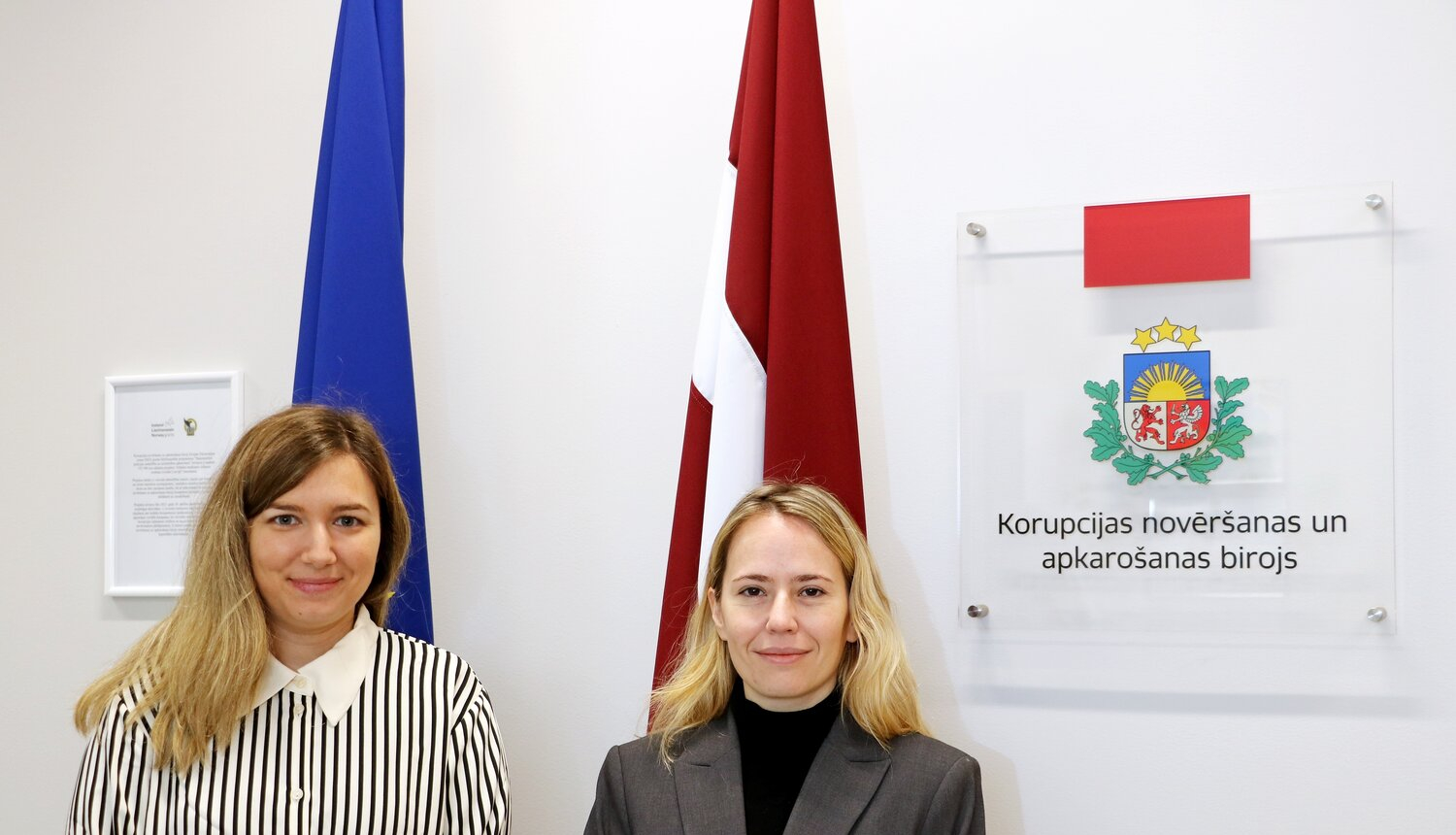Experts from the Organisation for Economic Co-operation and Development (OECD) on public sector integrity visited Latvia to learn about Latvia's conflict of interest prevention framework, its application in practice and to conduct an in-depth analysis of the compliance of the Law on Prevention of Conflict of Interest in the Activities of Public Officials with international standards and the best practice.
In Latvia, the Law on Prevention of Conflict of Interest in the Activities of Public Officials entered into force on 10 May 2002. The law has been amended several times over the years, but there has been no comprehensive assessment of its compliance with the international best practice. The project will also continue with a number of other activities to revise and modernise the provisions of the law, thereby promoting compliance with the requirements of the law in the activities of public officials.
During the three-day event, OECD experts Alice Berggrun and Pelagia Patsoule met with more than 20 representatives of public and non-governmental institutions at the premises of the Corruption Prevention and Combating Bureau (KNAB). During the meetings, the responsible institutions shared their experience and practice on the implementation and application of the Law On Prevention of Conflict of Interest in the Activities of Public Officials. The experts also heard views on the challenges and risks of implementing the existing framework in national and local authorities.
The visit of the OECD experts to Latvia is part of the KNAB-initiated project "Strengthening the Anti-Corruption Framework in Latvia". The main objective of the project is to support Latvia in developing and implementing reforms in the area of corruption prevention. The project has three sub-objectives: to review the adequacy of the regulatory framework for the prevention of conflict of interest to the current situation, to conduct a qualitative assessment of the internal anti-corruption control systems prepared by public institutions, and to prepare a methodology for assessing national corruption risks.
The project "Strengthening the Anti-Corruption Framework in Latvia" was launched on January 16 this year, and is expected to be implemented within 18 months. The project is funded by the European Commission's Directorate General for Structural Reform Support under the Technical Assistance Instrument. Technical support is provided by both the European Commission and the OECD. KNAB is responsible for the implementation of the project.





